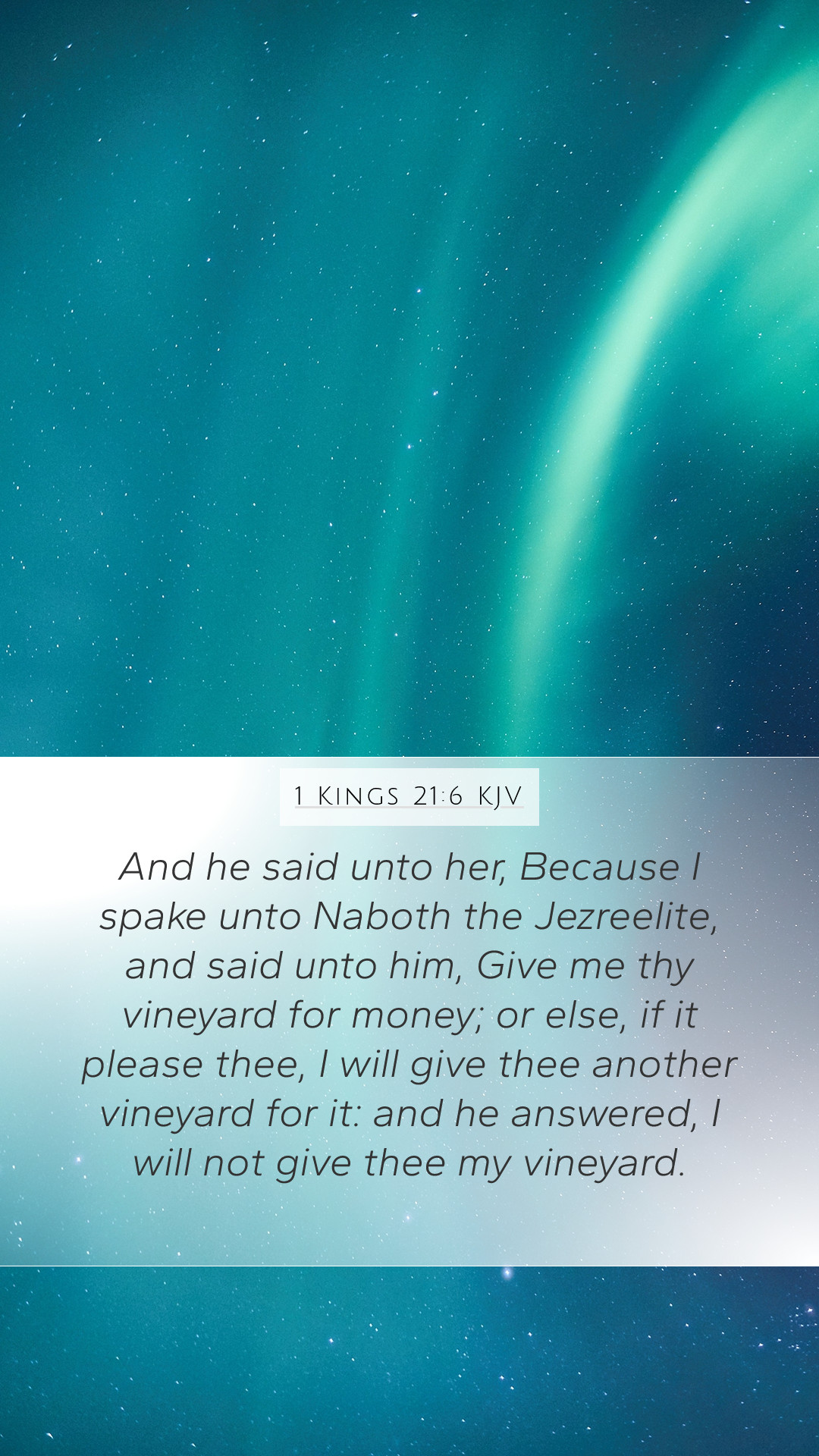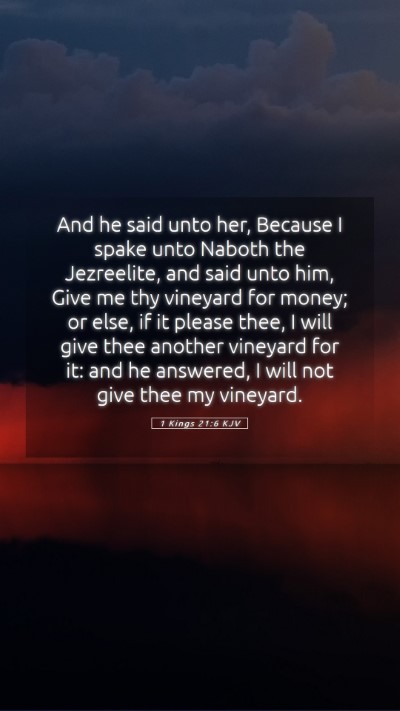Meaning and Interpretation of 1 Kings 21:6
In 1 Kings 21:6, we encounter a critical moment in the narrative of King Ahab and Naboth's vineyard. This scripture articulates the depths of Ahab's covetousness and the moral implications of his actions. Ahab, feeling discontented with his possessions, seeks to acquire Naboth's vineyard, offering a trade that reflects his entitlement as a king. Understanding this verse requires careful Bible verse interpretation that examines the characters involved and the cultural context of the time.
Contextual Background
The passage occurs during the reign of Ahab, a king known for his idolatry and disregard for God's commandments. The historical setting underscores the tension between divine law and human authority. Ahab's request to Naboth signifies a clash between legitimate rights and the corrupt desires of power. This verse illuminates the Bible study insights regarding authority, greed, and the consequences of transgressing moral boundaries.
Commentary Insights
-
Matthew Henry: Henry emphasizes the moral failure of Ahab, whose greed overrides his respect for Naboth's heritage rights. He illustrates how Ahab's desire for material possession leads to a deeper spiritual demise.
-
Albert Barnes: Barnes provides a detailed analysis of Ahab's proposition and Naboth’s refusal, noting that this reflects Naboth's commitment to his ancestral land, illustrating the historical significance of land ownership in Israelite culture.
-
Adam Clarke: Clarke discusses the implications of Ahab's covetousness and the legal framework of land rights given in the Mosaic Law. He highlights how Ahab epitomizes the tragic consequences of unchecked ambition and moral corruption.
Thematic Elements
The central themes reflect human nature's propensity for greed and the moral imperatives rooted in Scripture. This conflict foreshadows a series of tragic events influenced by Ahab's actions, enhancing our Bible verse understanding by showcasing the dynamics of power, law, and ethical conduct.
Applications in Daily Life
In contemporary contexts, 1 Kings 21:6 serves as a cautionary tale against covetousness and exploitation, encouraging readers to reflect on their motivations and the ethical implications of their desires. Ahab's example warns us of the dangers of prioritizing personal gain over integrity and justice. Thus, this verse provides valuable Bible study lessons that provoke introspection about our personal values and decisions.
Related Bible Cross References
- Exodus 20:17 - The commandment against coveting
- James 4:2 - The consequences of envy and desire
- 1 Samuel 8:10-18 - A reminder of the pitfalls of a king's authority
Conclusion
By examining 1 Kings 21:6 through various lenses of Biblical exegesis, this verse acts as a profound exploration of human desire, authority, and moral failure. Engaging with this verse can deepen one’s Bible verse understanding and serves as a powerful reminder of the historical and spiritual lessons contained in Scripture. For those involved in Bible study groups or online Bible study, this passage is an invaluable resource for discussing ethics, spirituality, and the importance of adhering to God's laws.


